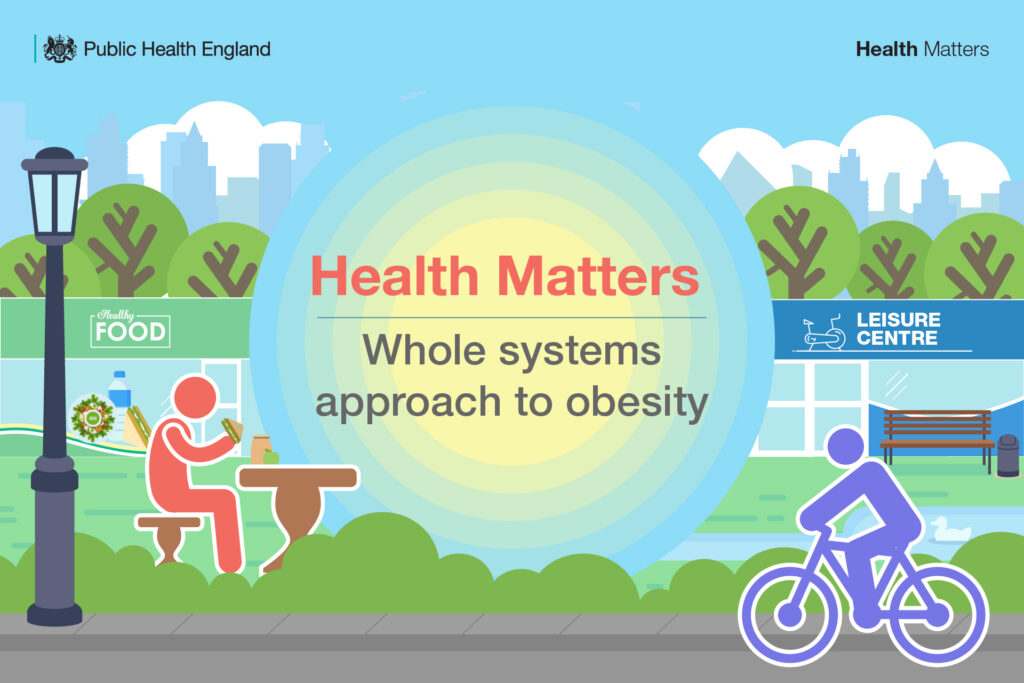
Dear everyone
Food, farming and countryside
On Wednesday the Food, Farming and Countryside Commission (FFCC) published ‘Our Future in the Land’, a landmark report looking at practical ways for policymakers, businesses and communities to respond to environmental challenges that impact health and wellbeing. The food we eat is everyone’s business and the Department for Environment, Food and Rural Affairs are developing a food strategy for the country which has the public’s health and sustainability at its heart.
We are eating more than before with waistlines expanding and diseases such as diabetes, which put huge strains on individuals and on the NHS, become more prevalent. Reducing the burden of obesity and its associated conditions and securing sustainable food production are economic imperatives for the UK and this report makes recommendations that are well worth taking note of.
A whole-systems approach to obesity
The causes of obesity are complex and there is of course no one solution. Our latest edition of Health Matters speaks to taking a whole systems approach to obesity at a local level and will be published next week. This has been a collaborative piece of work between PHE and the Local Government Association, the Association of Directors of Public Health, Leeds Beckett University and local authorities. You can sign up to the live teleconference taking place next week which will include a question and answer session with a panel of experts.

Ebola in the Democratic Republic of Congo
On Wednesday the World Health Organization declared the Ebola outbreak in the Democratic Republic of Congo (DRC) a Public Health Emergency of International Concern, triggering more funding and resources from the international community. PHE has been present in DRC 17 times since the outbreak began last year and we will continue to be there until the outbreak is resolved. The declaration of a PHEIC by the WHO reflects the challenges of containing the Ebola outbreak, and does not change the risk to the UK population which remains negligible to very low. You can read about the work happening in DRC through the UK Public Health Rapid Support Team in our blog.
Cancer data in action
PHE’s National Cancer Registration and Analysis Service (NCRAS) produced two case studies showing how cancer data is being used to improve care. These stories aim to reassure readers that patient information is being used appropriately, and to create greater transparency about the work of NCRAS.
One story describes how a research study has led to the development of a consent form for chemotherapy to encourage patients and their doctors to choose the best care possible. And the second describes how Pancreatic Cancer UK is using NCRAS data to campaign for faster treatment. NCRAS will continue to develop more stories in the coming months to show how data is being used in other ways to improve care. It was also great to see positive feedback on this work from the National Data Guardian as well as many other partners.
A new health alliance in the North of England
This week a number of health experts from northern universities have joined forces to create the Northern Universities’ Public Health Alliance, which marks a collective ambition to align talent and resource across the North to reduce health inequalities.
The health gap between the North and the rest of England remains stubborn, with over half of local authorities in the North experiencing lower life expectancy than the worst local authority in the South. As important as closing this gap is improving productivity. The North has more inequalities within health services and receives less research funding compared with the rest of the country, so bolstering efforts to improve health, which in turn improves productivity and the economy, makes great sense. This new partnership will work alongside other initiatives such as Well North to improve health outcomes and strengthen relationships between local government, the academic and third sectors and the NHS.
Celebrating Allied Health Professionals
The Chief Allied Health Professionals (AHPs) Awards recognise the impact that the 14 allied health professions, the third largest NHS workforce, have on the health and wellbeing of the nation. On Wednesday evening I was honoured to present the award for Public Health Champion 2019 to Jo Smith, Professional Head of Dietetic Services at Tees, Esk and Wear Valleys NHS Foundation Trust and to say thank you to everyone on the night.
Best wishes, Duncan
You can subscribe to the Friday message newsletter version which goes direct to your inbox here.
